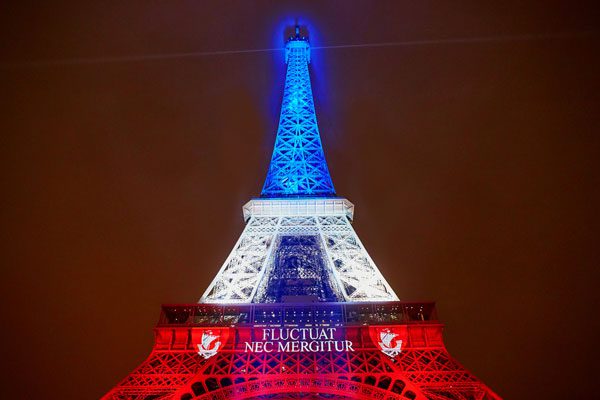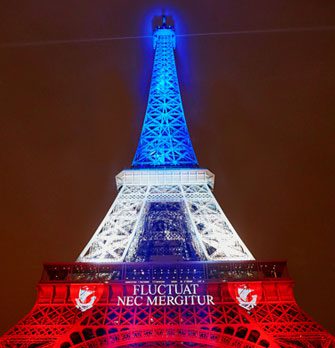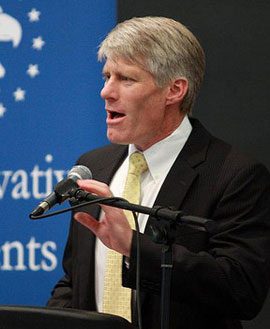Terrorism and the Future of Europe: Professor Nelsen Weighs In

The shock of the terrorist attacks that took place in Paris last week has been felt around the world, but the impact has been especially profound in Europe. To gain a better understanding of what the immediate future holds for the European nations, Furman’s News and Media Relations office asked political science professor Brent Nelsen to answer a few questions about the situation there.
Dr. Nelsen, who joined the faculty in 1990, teaches courses on Europe and the European Union. He is the author of several books, including “Religion and the Struggle for European Union: Confessional Culture and the Limits of Integration,” which he co-authored with Furman professor James Guth.
Nelsen serves on the Board of Directors of the Corporation for Public Broadcasting, and is also chairman of the South Carolina Education Television Commission. He just returned from Brussels, Belgium, where he oversaw Furman’s foreign study program in the city that serves as the unofficial capital of the European Union.
Q: How will the attacks in Paris affect the political culture of Europe? Will it boost support for the far right politicians?
Nelsen: These events will surely focus attention on security in Europe. Political parties that promise a crackdown on Islamists will gain influence. The far right parties will certainly benefit from the fear that people feel. The National Front in France has already been polling well. I assume the party will only gain support by taking a hard line on immigration and open borders.
Q: Are the European nations’ immigration policies likely to change now? What does it mean for the Syrian refugees who are already in Europe?
Nelsen: German Chancellor Angela Merkel has vowed not to change her open door policy, but some of her own party members are openly questioning the wisdom of bringing so many refugees into the country. Bavarian politicians have even threatened to close Bavaria’s borders if Germany as a whole doesn’t reduce the flow of asylum seekers.
Clearly, newly settled refugees will experience high levels of distrust. We may see more refugee shelters burned down. We will certainly see more law enforcement control in immigrant neighborhoods where Jihadists have been known to hide, such as Molenbeek, Belgium and Saint-Denis, France.
Q: How is the response to the attacks likely to affect the European Union?
Nelsen: The terrorist attacks may be a bigger threat to the EU than the Greek euro crisis. The flow of refugees has already caused some governments to close their borders or re-impose border checks. These borders have been open and uncontrolled for over a decade, longer in some cases. The fact that terrorists have used the freedom of travel characteristic of Europe in the 21st century to facilitate their violent jihad calls into question the ability of Europe to have both open borders and safe citizens.
The freedom to travel unhindered by borders is one of the EU’s most visible benefits. If it disappears, many will question the need for the EU. This may lead to a British exit. Other member states may follow.
Q: How is Europe’s response to the attacks likely to affect the rest of the world?
Nelsen: The Paris attacks have already changed the power calculus in the Middle East. The U.S. and Russia may be more willing to work together in Syria.
The major external impact may be in the U.S. The presidential campaign could focus more on security issues and foreign policy than it might otherwise. It will also make more attractive candidates offering interventionist solutions to the mess in the Middle East. Expect a new president in 2017 to come into office having pledged to fight a much more aggressive campaign against ISIS at home and abroad than has been conducted by President Obama.

